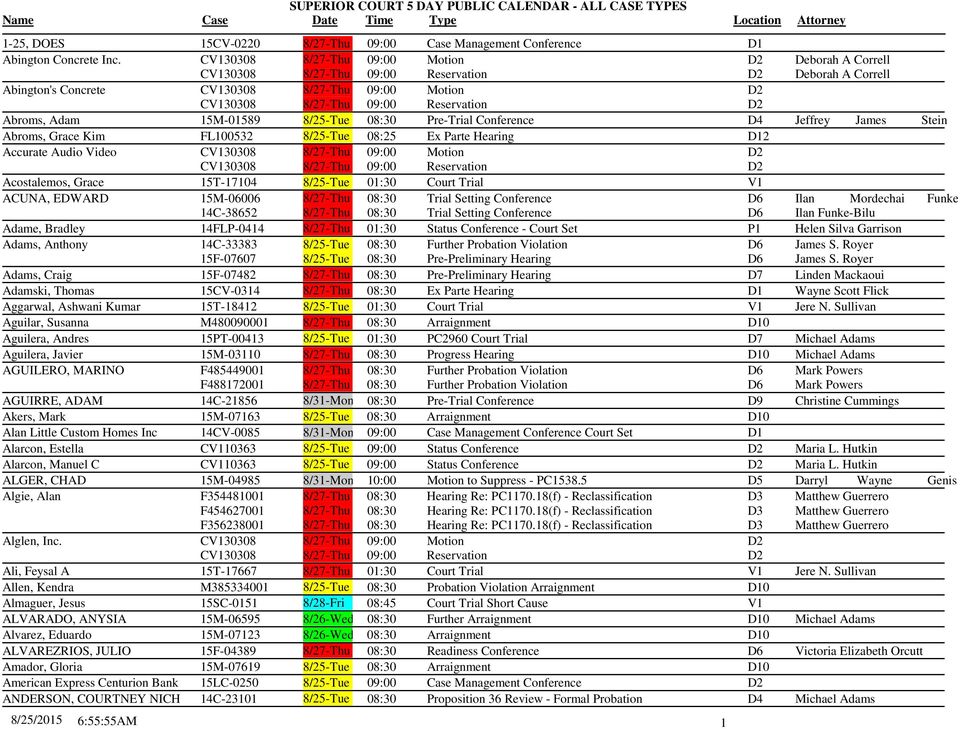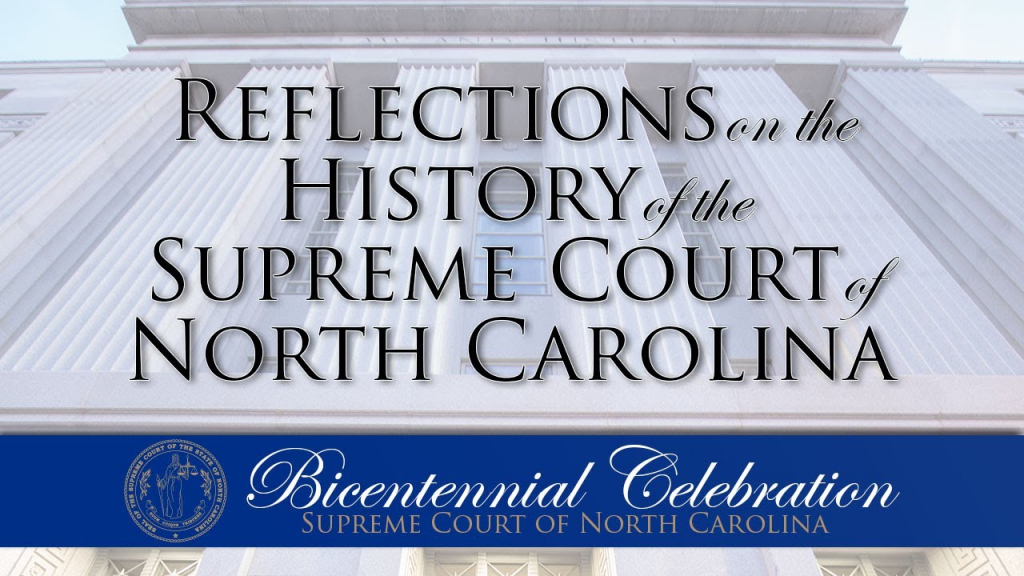Understanding the NC court calendar is essential for anyone involved in the North Carolina legal system, whether as a defendant, attorney, or legal professional. The court calendar serves as a structured timeline of all scheduled hearings, trials, and court proceedings. It ensures that all parties involved are aware of important dates and deadlines, allowing them to prepare accordingly. As the backbone of court operations, the NC court calendar plays a crucial role in maintaining the efficiency and fairness of the legal process.
The legal system in North Carolina is complex and multifaceted, requiring careful planning and organization. The NC court calendar helps streamline this process by consolidating all relevant information into a single accessible platform. This allows individuals to stay informed about upcoming court dates and legal proceedings, reducing the risk of missed deadlines and ensuring that justice is served promptly.
In this comprehensive guide, we will explore the intricacies of the NC court calendar, including how it works, its importance, and how you can access it. Whether you're a legal professional, a defendant, or simply someone interested in the workings of the North Carolina judicial system, this article will provide you with all the information you need to navigate the NC court calendar effectively.
Table of Contents
- Introduction to NC Court Calendar
- Structure of NC Court Calendar
- How to Access the NC Court Calendar
- Important Dates on the NC Court Calendar
- Benefits of Using NC Court Calendar
- Common Challenges with NC Court Calendar
- Tips for Managing NC Court Calendar
- Technology and NC Court Calendar
- Legal Considerations in NC Court Calendar
- Future of NC Court Calendar
- Conclusion
Introduction to NC Court Calendar
The NC court calendar is a critical component of the North Carolina judicial system. It serves as a centralized platform that organizes and tracks all court proceedings, including hearings, trials, and other legal events. By providing a clear and structured timeline, the NC court calendar ensures that all parties involved in a case are aware of important dates and deadlines.
For legal professionals, the NC court calendar is an indispensable tool. It helps them manage their caseloads efficiently, ensuring that they are prepared for all scheduled court appearances. For defendants, it provides transparency and clarity about the legal process, reducing anxiety and uncertainty about court dates.
In addition to its practical applications, the NC court calendar plays a vital role in upholding the principles of justice and fairness. By ensuring that all parties have access to the same information, it promotes accountability and transparency within the legal system.
Structure of NC Court Calendar
Overview of the Calendar System
The NC court calendar is structured to accommodate the diverse needs of the legal system. It includes various types of court proceedings, such as civil, criminal, family, and juvenile cases. Each type of case has its own set of rules and procedures, which are reflected in the calendar's design.
Key Components of the NC Court Calendar
The NC court calendar is composed of several key components, including:
- Hearings: Scheduled sessions where legal arguments are presented and evidence is reviewed.
- Trials: Formal court proceedings where a judge or jury determines the outcome of a case.
- Pretrial Conferences: Meetings held before a trial to discuss case issues and streamline the legal process.
- Motions: Formal requests made to the court for a specific ruling or order.
These components work together to create a comprehensive and organized system that supports the efficient operation of the courts.
How to Access the NC Court Calendar
Online Access
Accessing the NC court calendar has never been easier, thanks to advancements in technology. The North Carolina judiciary provides an online portal where individuals can view and manage their court dates. This portal is accessible through the official website of the North Carolina Courts.
Mobile Applications
In addition to the online portal, the NC court calendar is also available via mobile applications. These apps allow users to receive notifications about upcoming court dates and stay updated on case developments. They are a convenient tool for anyone who needs to keep track of their legal obligations.
Important Dates on the NC Court Calendar
The NC court calendar includes a variety of important dates that individuals should be aware of. These dates may include:
- Filing Deadlines: Dates by which legal documents must be submitted to the court.
- Hearing Dates: Scheduled sessions where legal arguments are presented.
- Trial Dates: Formal proceedings where the outcome of a case is determined.
- Pretrial Conferences: Meetings held to prepare for trial and resolve case issues.
Staying informed about these dates is crucial for ensuring that all legal obligations are met on time.
Benefits of Using NC Court Calendar
Efficiency and Organization
One of the primary benefits of using the NC court calendar is improved efficiency and organization. By providing a centralized platform for tracking court dates and deadlines, the calendar helps legal professionals and defendants manage their cases more effectively.
Transparency and Accountability
The NC court calendar promotes transparency and accountability within the legal system. By ensuring that all parties have access to the same information, it fosters trust and confidence in the judicial process.
Common Challenges with NC Court Calendar
Despite its many benefits, the NC court calendar is not without its challenges. Some common issues include:
- Technical Difficulties: Problems with accessing the online portal or mobile apps.
- Overlapping Dates: Scheduling conflicts that arise when multiple cases are assigned to the same time slot.
- Communication Gaps: Miscommunication between parties regarding court dates and deadlines.
Addressing these challenges requires ongoing efforts to improve the system and enhance user experience.
Tips for Managing NC Court Calendar
Stay Organized
To effectively manage the NC court calendar, it is important to stay organized. Use tools such as calendars, reminders, and alerts to keep track of important dates and deadlines.
Communicate Clearly
Clear communication is essential for ensuring that all parties are aware of court dates and deadlines. Regularly check in with clients, attorneys, and other stakeholders to confirm scheduling details.
Technology and NC Court Calendar
Technology plays a vital role in the operation of the NC court calendar. Advances in digital platforms and mobile applications have made it easier than ever to access and manage court dates. These tools provide real-time updates and notifications, ensuring that individuals stay informed about case developments.
Legal Considerations in NC Court Calendar
When using the NC court calendar, it is important to be aware of legal considerations such as:
- Confidentiality: Ensuring that sensitive information is protected and not shared with unauthorized parties.
- Compliance: Adhering to all applicable laws and regulations regarding court proceedings.
- Accessibility: Ensuring that the calendar is accessible to all individuals, including those with disabilities.
These considerations are crucial for maintaining the integrity and fairness of the legal system.
Future of NC Court Calendar
The future of the NC court calendar looks promising, with continued advancements in technology and increased emphasis on accessibility and usability. As the legal system evolves, the NC court calendar will likely become even more integrated into the digital landscape, providing users with seamless access to court information and services.
Conclusion
In conclusion, the NC court calendar is an essential tool for anyone involved in the North Carolina legal system. It provides a structured and organized approach to managing court dates and deadlines, promoting efficiency, transparency, and accountability. By understanding how to use the NC court calendar effectively, individuals can ensure that their legal obligations are met on time and that justice is served fairly.
We encourage you to explore the resources available through the NC court calendar and take advantage of the tools and technologies that support its operation. For more information, visit the official website of the North Carolina Courts or consult with a legal professional. Don't forget to share this article with others who may find it useful, and feel free to leave a comment or question below.
References:
- North Carolina Courts Official Website
- Legal Resources for NC Court System
- Technology and the Future of Court Calendars


